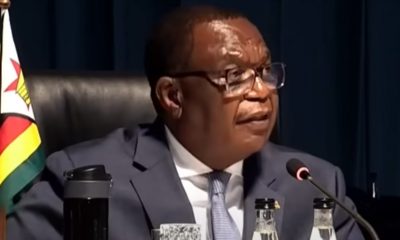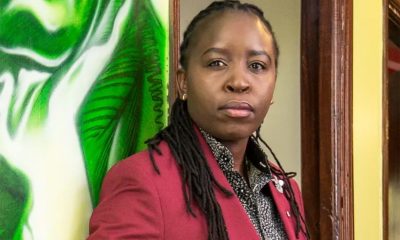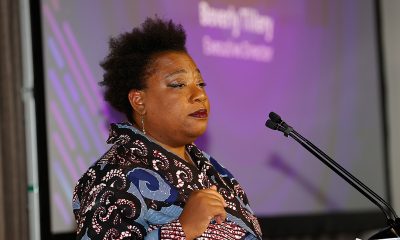Africa
LGBTQ advocacy groups in Zimbabwe fight gender-based violence
GALZ study found majority of survivors don’t report abuse
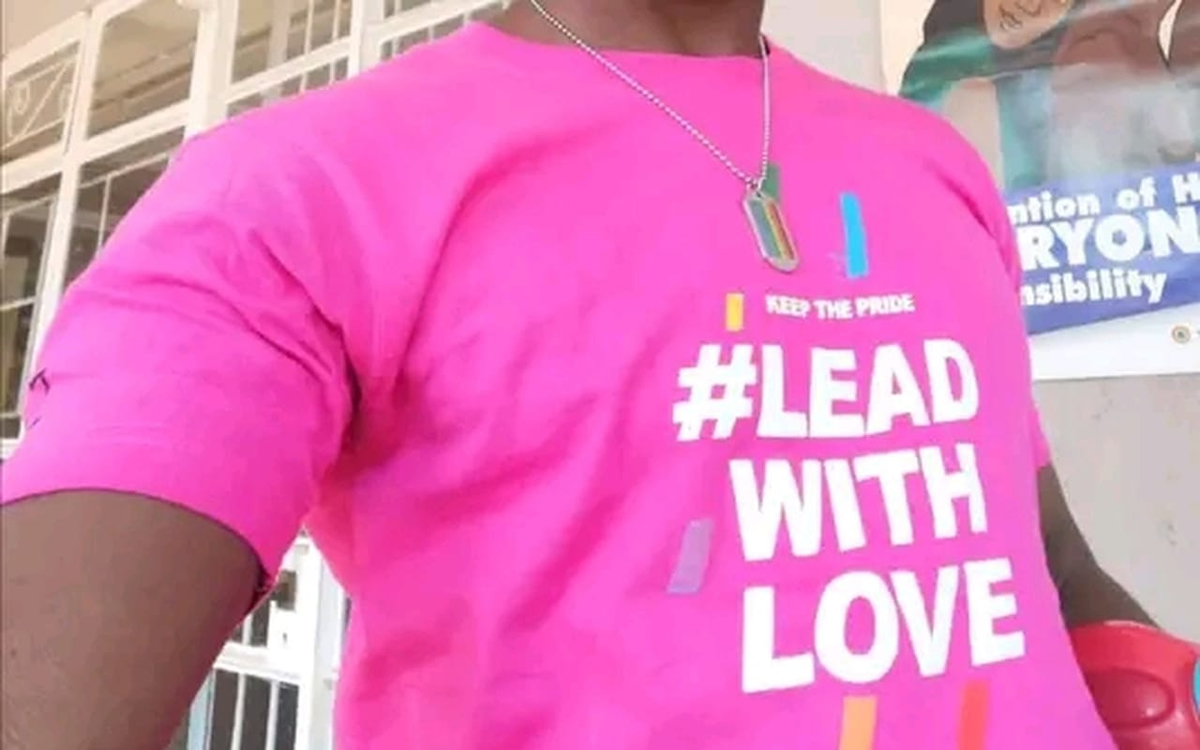
President Emmerson Mnangagwa’s 2018 inauguration was seen as a new dawn not only for the country’s political and economic elite, but for LGBTQ and intersex Zimbabweans and other groups. The LGBTQ and intersex community nevertheless continues to reel from intimidation, harassment and ostracization five years after the late-President Robert Mugabe, who ruled the country with an iron fist, left office.
The 2013 Constitution that is currently in use does not outlaw consensual same-sex sexual relations, but same-sex marriages if one is found engaging in sexual activity that is regarded as illegal. The Zimbabwean government, in other words, does not have a problem with anyone who is part of the LGBTQ and intersex community as long as they do not get married or have sex in public.
Even though the Constitution may appear to tacitly protect LGBTQ and intersex Zimbabweans, their everyday experiences, especially when it comes to the issue of gender-based violence, is vastly different.
“Mainstream dialogue of GBV (gender-based violence) in Zimbabwe has predominantly given salience to the experience of cisgender category of women over LBT women. Little to no conversation has been facilitated on the experiences of LBT women, who are disproportionally affected by GBV. GALZ (Gays And Lesbians of Zimbabwe) has recorded extreme cases of correctional rape, sexual assault and physical assault and intimate partner violence (IPV),” said Samuel Matsikure, programs manager for Gays and Lesbians of Zimbabwe, an LGBTQ and intersex rights group.
According to a study conducted by GALZ in 2021, at least one in three lesbian, bisexual and transgender women experienced violence inflicted based on perceived sexual orientation and gender identity. Gay, bisexual and trans men have also experienced heightened emotional and physical violence, and a lack of accountability exacerbates these experience.
GALZ has also documented cases of intimate partner violence, but the restrictive environment in which it works perpetuates silence around them. Other factors that contribute to this inaction include an unresponsive police force and judicial system and a patriarchal society that does not acknowledge violence between partners of the same sex and ridicules men who report they are survivors of intimate partner violence.
At least 65 percent of people who GALZ interviewed for their 2021 study said they never reported the abuse they experienced for fear of double victimization.
“This is primarily due to the fact that law enforcement is relatively lux to take action and investigate same-sex partner violence and general violence perpetrated on LGBTI people and society at large also turns a blind eye to this calibre of violence. Such attitudes in turn, discourage victims to speak out and report GBV,” said Matsikure.
Matsikure also described the government’s commitments to protect LGBTQ and intersex Zimbabweans through its National Development Strategy as nothing more than lip service.
“The government has indirectly made considerable efforts to protect LGBTI people from all forms of harm and abuse,” said Matsikure. “However, government is yet to fulfill such commitments creating challenges such as, hesitancy of law enforcement agencies to crack down on GBV experienced by LGBTI persons and hesitancy of LGBTI persons to report or speak out against GBV due to fear of blackmail, homophobic backlash, stigma non-recognition of females as perpetrators of IPV. Lack of political will and leadership to address GBV against LGBTI persons. Delays in seeking treatment, there can be significant delays between GBV and presentation to medical care.”
“Moreover, constant threats of deregistration of organizations working on the protection of human rights and LGBTI rights by the State limits the interaction of communities with the law enforcers as same-sex conduct is still criminalized,” added Matsikure. “The perception that the current Constitution outlawed homosexuality hinders some government entities from openly assisting LGBTI persons where GBV or IPV has been reported yet the Constitution only mentions same-sex marriage.”
Trans and Intersex Rising Zimbabwe also said they were working on establishing a safe environment for LGBTQ and intersex Zimbabweans in which they will coexist with the heterosexual community.
TIRZ says it’s working through a an initiative that focuses on three areas: Family and friends, sensitizing people on LGBTQ and intersex issues and building an educational and informational support system that focuses on creating lobby, advocacy, religion and cultural programs. TIRZ hopes these efforts will create common ground and allow dialogues with heterosexual Zimbabweans.
TIRZ Program Director Chihera Meki said LGBTQ and intersex Zimbabweans still face major challenges, despite these efforts.
“Challenges such as gate keepers as well as religious and cultural beliefs have affected the program to reach out to the various communities, to help close the gap on information,” said Chihera.
Daniel Itai is the Washington Blade’s Africa Correspondent.
Africa
Ugandan activists appeal ruling that upheld Anti-Homosexuality Act
Country’s Constitutional Court refused to ‘nullify’ law

Twenty-two LGBTQ activists in Uganda have appealed this month’s ruling that upheld the country’s Anti-Homosexuality Act.
The Constitutional Court on April 3 refused to “nullify the Anti-Homosexuality Act in its totality.”
President Yoweri Museveni last May signed the law, which contains a death penalty provision for “aggravated homosexuality.”
The U.S. subsequently imposed visa restrictions on Ugandan officials and removed the country from a program that allows sub-Saharan African countries to trade duty-free with the U.S. The World Bank Group also announced the suspension of new loans to Uganda.
Media reports indicate Sexual Minorities Uganda Executive Director Frank Mugisha and Jacqueline Kasha Nabagesara are among the activists who filed the appeal.
Africa
Congolese lawmaker introduces anti-homosexuality bill
Constant Mutamba’s measure seen as distraction from country’s problems
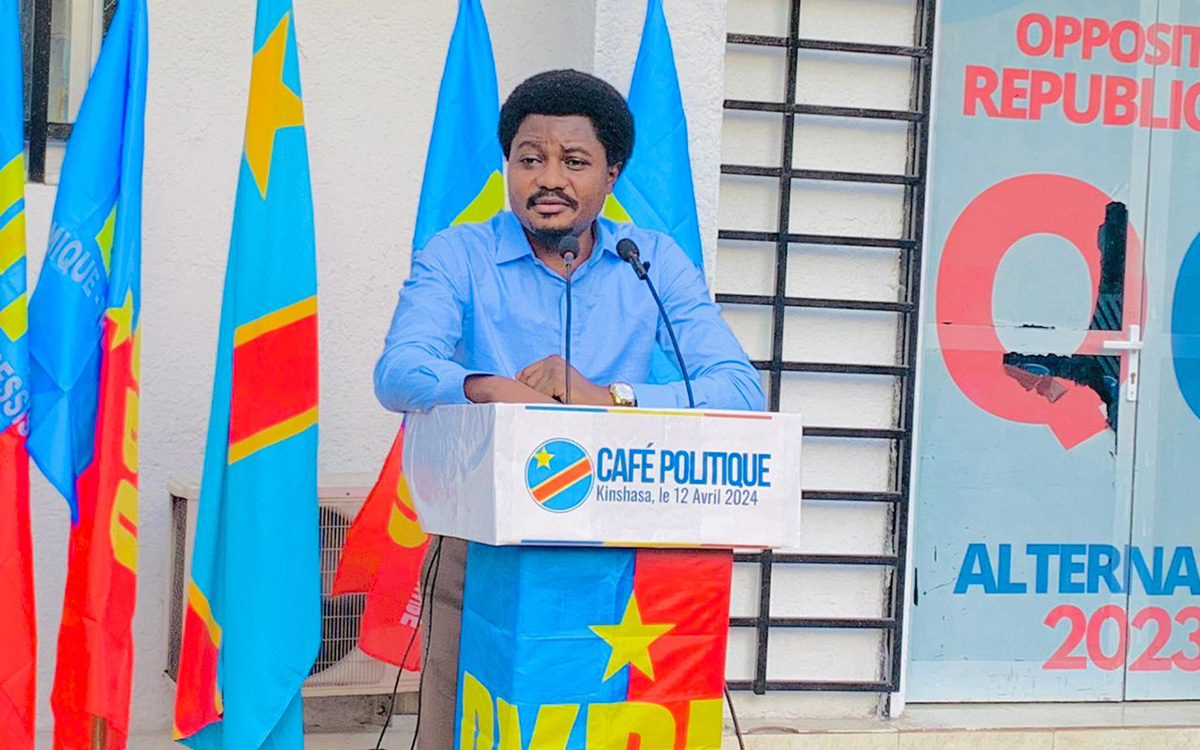
A member of the Democratic Republic of Congo’s National Assembly who is a leader of the country’s opposition party has introduced a bill that would criminalize LGBTQ people.
Part of the bill that Constant Mutamba, leader of the Dynamic Progressive Revolutionary Opposition platform, has put forth states anyone who “commits a homosexual act (including acts and gestures) will be liable to a 5- or 10-year prison sentence.”
The country in recent years has seen government leaders and civic society target the community with anti-LGBTQ sentiments.
The Superior Council for Audiovisual and Communication, Media Regulatory Authority last June cautioned the media against showing LGBTQ-specific conversations. Several activists have criticized Mutamba’s bill, saying it seeks to move attention away from governance, service delivery and other pertinent issues in the country.
Sirius Tekasala, a human rights activist, said a person’s sexual orientation does not impact issues of governance.
“The proposed bill does not go in the direction of improving the socio-economic life of the Congolese people,” said Tekasala. “It’s not homosexuals who prevent you from doing your job well or from breathing. This is a violation of human rights.”
Mbuela Mbadu Dieudonné, a social analyst and trade unionist, said the bill is just a way of deviating people from the pertinent issues.
“He should suggest how to get the Congolese people out of this precariousness of life which is growing on a daily basis,” said Dieudonné. “When we don’t know the real problems of the Congolese people, he sets himself up as the great director of scenes to distract the Congolese people.”
Many Congolese, however, seem to support the bill and have applauded Mutamba for drafting it.
This is not the first time that such kind of a bill has been drafted.
An anti-homosexuality bill introduced in 2010 would have sentenced people who engage in consensual same-sex sexual relations to between three and five years in prison. The measure, however, did not become law.
Mutamba’s bill, however, may pass with Uganda’s Anti-Homosexuality Act in effect. The country’s Constitutional Court earlier this month upheld it. Burundi, Tanzania and other neighboring countries are also considering similar measures.
Many Congolese people view LGBTQ rights as a Western phenomenon that disregards their religious and cultural beliefs. LGBTQ Congolese are among those who have fled the country and sought refuge in the Kakuma refugee camp in Kenya and other places.
Consensual same-sex sexual relations are not criminalized in the Democratic Republic of Congo, but Congolese law does not recognize same-sex marriages.
Africa
Prominent transgender woman in Nigeria arrested, charged with defacing currency
Authorities say Idris Okuneye, known as Bobrisky, flaunted money

Nigeria’s Economic and Financial Crimes Commission’s decision to arrest a well-known transgender woman over the practice of flaunting money has sparked questions among several human rights activists.
Idris Okuneye, who is known as Bobrisky, was first arrested last Wednesday.
Justice Abimbola Awogboro of the Lagos Federal High Court on April 5 charged her with four counts of mutilating N490,000 (roughly $375.)
The EFCC alleges Bobrinsky between last July and August flaunted N50,000 (roughly $36) during a social event and N400,000 ($306) at another gathering last month. Bobrinsky has been charged with violating section 21(1) of the Central Bank Act of 2007.
“The Lagos Zonal EFCC, on Friday, April 5, 2024, secured the conviction of Idris Okuneye, (Bobrisky), before Justice Abimbola Awogboro sitting at the Federal High Court, Ikoyi, Lagos over mutilation of the Naira notes,” reads the EFCC complaint that misgenders Bobrisky. “He was arraigned on Friday on a four-count charge bordering on mutilation of the Naira notes to the tune of N490,000.”
“Justice Awogboro, thereafter, ruled, that upon the admission of guilt by the defendant, and following the evidence tendered, the defendant is declared guilty as charged,” adds the statement.
The EFCC said after listening to both parties, Awogboro delayed his ruling and also ordered that Bobrisky remain in EFCC custody. Activist Felix Abayomi said the EFCC was simply using Bobrisky as a scapegoat due to the fact that she is a vulnerable member of the society.
“Discrimination in the name of implementing a pick and choose law! Why go after someone that is a vulnerable member of our society? Someone that is clearly dealing and coping with stigmatization of her lifestyle choices which is innate. Using her as a scapegoat is uncalled for,” said Abayomi. “How does spraying the Naira that is cultural to us as a people ever even become a financial crime? People who commit economic and financial crimes against us as a people and against our nation state are sitting comfortably in the hollows of our legislative chambers and power.”
Chidi Odinkalu, the former chair of the National Human Rights Commission, said the arrest was not about the mutilation of the Naira notes, but about Bobrisky’s gender identity.
“The EFCC should be ashamed of themselves,” said Odinkalu. “The power of arrest and prosecution is a public trust that should not be weaponized for the persecution of those whom they don’t like. It is either the EFCC is evidently idle or this is a clear abuse of power.”
EFCC spokesperson Dele Oyewale said Odinkalu’s statements were reckless.
“The commission views such commentaries from Odinkalu as unbecoming of a former head of a major government agency,” said Oyewale. “Okuneye was arrested and arraigned by the commission on the basis of clear cases of abuse of the Naira to which he has pleaded guilty.”
“Odinkalu has a right to free speech as a Nigerian, but such a right should be exercised with decorum and responsibility,” added Oyewale. “The commission would not hesitate to take appropriate legal actions against such uncouth commentaries against its lawful mandate by anyone. Odinkalu is warned and advised to ventilate his rascally opinions more responsibly in future situations.”
Bobrisky is one of the few individuals on the African continent who has publicly discussed their gender transition.
Ever since she started to publicly show her transition, several Nigerian political pundits have been calling for her arrest. There are no laws that specifically target trans Nigerians, but the Same-Sex Marriage Act criminalizes same-sex marriages and prohibits the public display of same-sex relationships with up to 14 years in prison.
In states where Sharia law is practiced, those found engaging in same-sex sexual activities can be sentenced to death by stoning. Even those who identify as trans can receive 50 lashes or more.
Update: Awogboro on Friday sentenced Bobrisky to six months in prison without the option of paying a fine. Reports indicate authorities will send her to a men’s prison.
-

 Africa3 days ago
Africa3 days agoCongolese lawmaker introduces anti-homosexuality bill
-

 Colorado5 days ago
Colorado5 days agoFive transgender, nonbinary ICE detainees allege mistreatment at Colo. detention center
-

 World3 days ago
World3 days agoOut in the World: LGBTQ news from Europe and Asia
-

 Real Estate4 days ago
Real Estate4 days agoBoosting your rental property’s curb appeal

